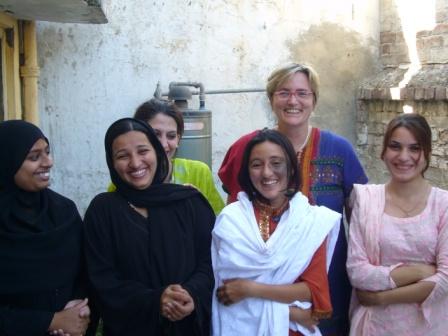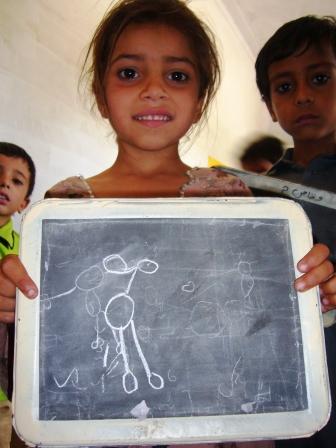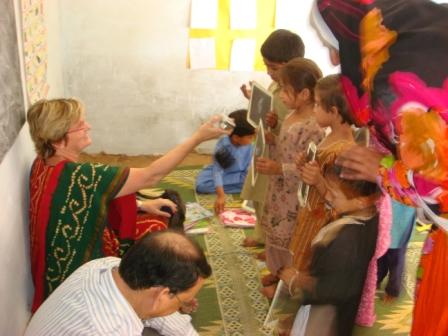
BRAC began operations in Pakistan in 2007, looking to replicate its successes in Afghanistan and in Bangladesh. I recently visited Karachi, Lahore, Rajindrapur, Islamabad and the Peshawar region of Pakistan's North-West Frontier Province to see BRAC's microfinance and new education programs and to discuss the start up of a pilot program in health.
BRAC works with the knowledge that in the midst of conflict there are ordinary people struggling to build stable lives for the future, and I was able to get a first-hand impression of how the people there are coping during a very stressful time. Inhabitants of the province of Pakistan with the poorest record in maternal and child mortality and education for girls, the people of NWFP live in an area that already faced severe development challenges. Now they live in a war-zone.
Despite the challenges, our microfinance groups in Pakistan already have more than 45,000 members, and BRAC has lent over $7 million to 35,000 women in average size loans of $200. I was heartened to see that our staff in the NWFP are strong, well educated women with courage and a vibrant sense of humor. I know that labor mobility is an issue for many workers, as there is tremendous cultural and societal pressure on them to stay home or close to their families instead of uprooting themselves to follow career opportunities. We anticipated that this might be a problem for BRAC, as we tend to recruit mostly women, both as borrowers and as staff.
On this visit, I was delighted to listen to our staff expressing interest in pursuing higher paid posts which require relocation to other parts of the country, even if it might be frowned upon by their families. They are pragmatic and put on a veil to move around outdoors but they are determined to move. In a country that is often criticized for its poor record in women's rights, these women are indeed agents of change.
The same is true for our borrowers. BRAC has made it a point to provide microfinance services to women as they are the poorest and most excluded from economic activity. However given the low economic participation of women in the country, many of these women are borrowing for family businesses or for work their husband carries out. On the other hand I met several women who used their money to start their own businesses, ranging from tailoring shops to beauty salons.
I also visited a larger microenterprise run by a husband and wife team who also employed 15 home based workers that made national flags for 3 months of the year and crepe paper decorating materials for the balance. This enterprising woman took us to her roof where she had set up her flag-making business, while two sheep that she had also purchased with micro-loans rested near the flags hanging on a clothes line to dry. Despite the precarious situation in the region, she expressed hope about the future. Hopefully other women will be inspired by her example, and will seize opportunities to directly engage in growing their business and break out of their more socially constrained roles.
A highlight of my trip was my visit to our pilot pre-primary school in Haripur near Islamabad. The BRAC school is comprised mostly of girls, a rare few among their peers who receive an education. I sat on a mat with the children while they had their art class. Pakistan's future drew with chalk on their slates, curiously peeking every now and then at the strange-looking foreigner sitting among them. When they came up to me to show me their work, I was surprised to find that among the usual drawings of mangos and bananas there were quite a few portraits of yours truly. I took their photos and, much to their amazement, showed them what they looked like on the digital camera. Some eagerly kept returning proudly brandishing yet another masterpiece to see themselves again, others shyly returned to their seats immediately. One child was terrified of me. All were adorable.
The men, women, and children of the area are seeking stability and comfort just like the people of any other part of the world, and they will take advantage of any support provided by the international community. Along with military and political strategies, the key to peace in this area urgently requires solid development solutions. The discussion on the situation in Pakistan needs to see far more coverage of development issues such as microenterprise, schools, rural health, literacy, and life expectancies, along with the usual stories of troop movements, surges, bombings, and airstrikes. We need to look at the full picture if we are to successfully support the people of Pakistan at this critical juncture.


